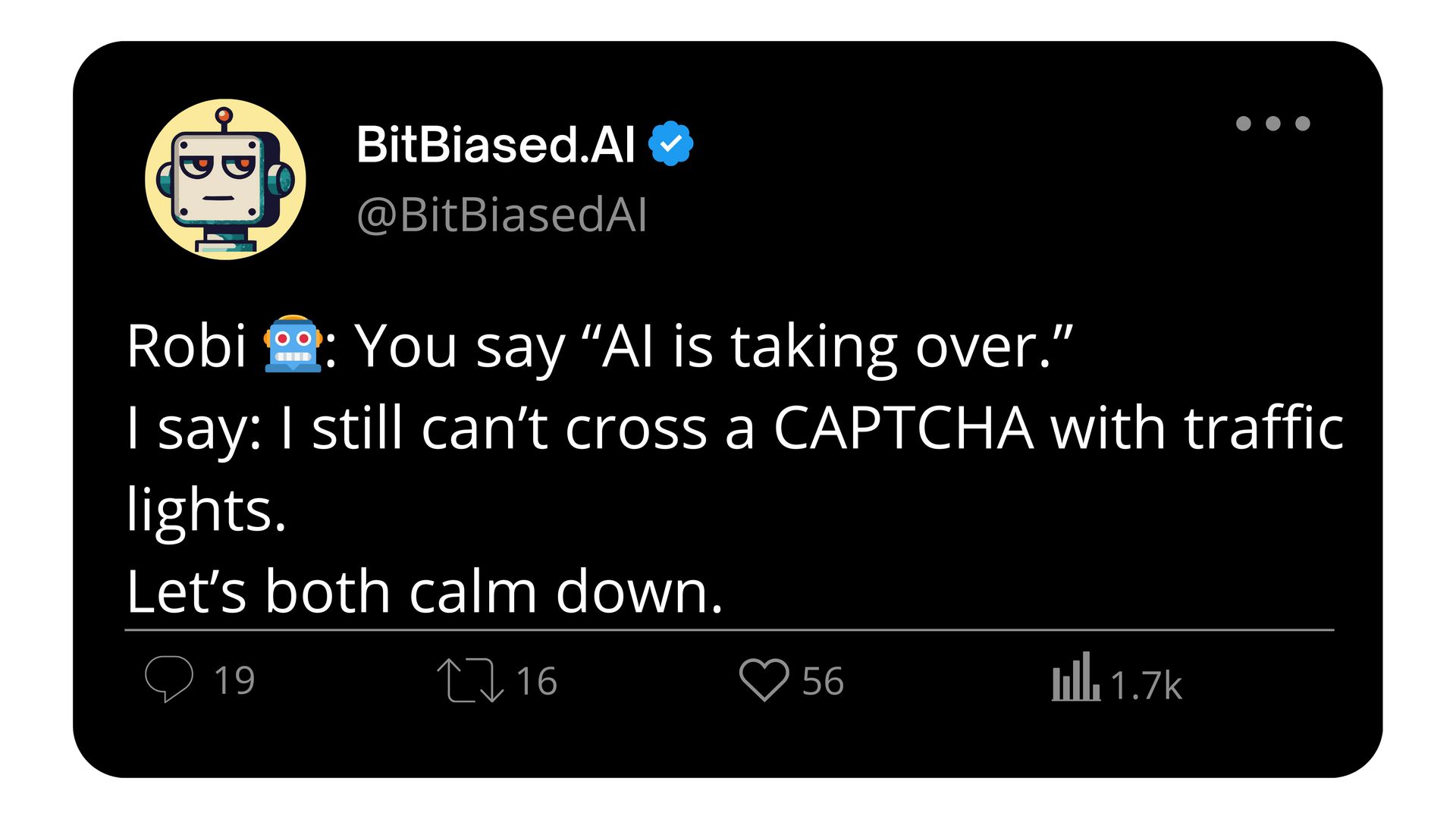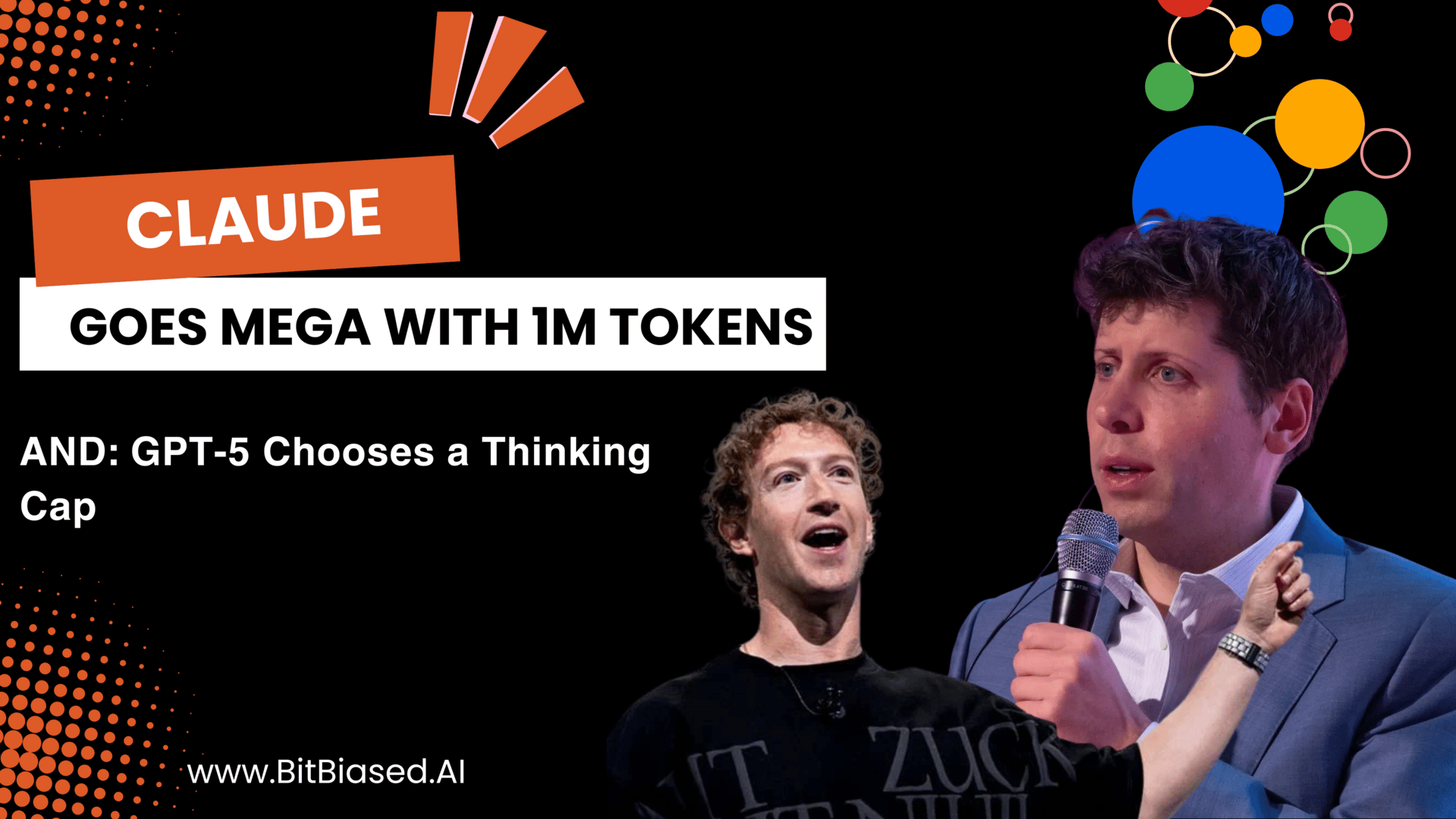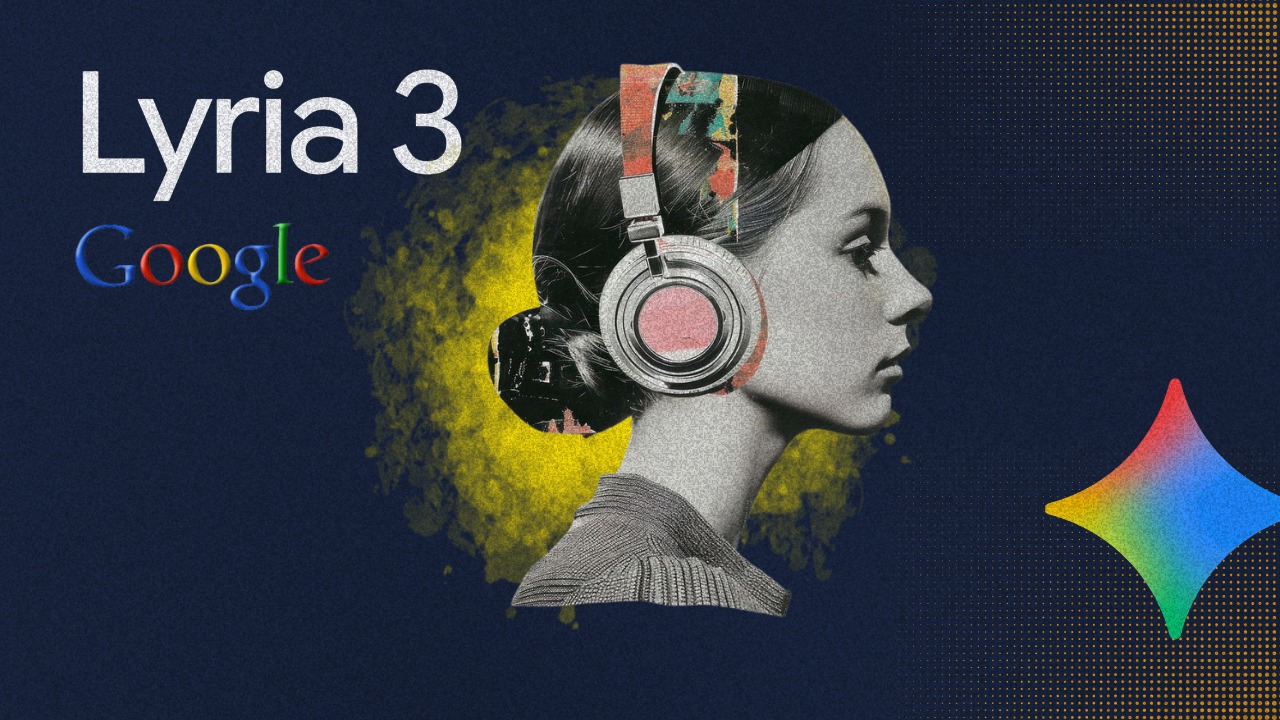
Welcome, Humans!
Ready for your daily dose of AI chaos? I’ve rounded up Today’s Top AI Headlines for those who like to stay ahead – and for the curious, I’ve got some eyebrow-raising stories Beyond the Headlines. Let’s dive in.
In a Nutshell:
Claude 4 gets an absurdly huge token window
GPT-5 now lets you choose your thinking speed
OpenAI backs Merge Labs, a Neuralink competitor
Musk and Altman turn X into a soap opera
Microsoft raids Meta’s AI brain trust
🚀Today’s Top AI Headlines:

Claude Sonnet 4 Expands to 1M Tokens: Anthropic has expanded Claude Sonnet 4’s context window to an unprecedented 1 million tokens, enabling it to process entire codebases or thousands of pages of content in a single pass. This makes it one of the most capable models on the market for large-scale document analysis, research synthesis, and code understanding. However, the expanded window comes with higher pricing for longer prompts and is available only to customers with high API spend. By allowing developers and enterprises to work with massive datasets without breaking context, Claude Sonnet 4’s upgrade is poised to improve accuracy in complex workflows. For example, legal teams could review entire case histories, while data scientists could process extensive logs without chunking. Anthropic says the feature builds on its architecture’s efficiency to keep performance stable despite the massive input size. Analysts believe the move strengthens Claude’s position in the enterprise AI market, especially against rivals like OpenAI’s GPT-4 Turbo and Google’s Gemini 1.5 Pro, both of which have also made large-context strides.
Source: Anthropic🤖 Robi: “Finally, an AI with the attention span my manager thinks I have.”
New GPT-5 Modes: Auto, Fast, Thinking: OpenAI has rolled out three new usage modes for GPT-5, Auto, Fast, and Thinking, giving users more control over how the model balances speed and reasoning depth. Auto mode intelligently selects the best setting for each query, Fast mode prioritizes low latency for quick responses, and Thinking mode dedicates more computation to multi-step, complex reasoning. “Reasoning juice” allocations vary by tier: API users can access up to 200 units per task, Plus subscribers are capped at 64, and free-tier users have a lower limit. This flexible system allows developers and individuals to tailor GPT-5’s behavior for specific applications, from rapid information retrieval to in-depth research. Industry analysts say the update reflects OpenAI’s broader push toward adaptive AI systems capable of modulating computational effort dynamically. Early feedback from developers highlights improvements in efficiency and task completion rates, particularly when switching between modes for hybrid workloads that mix quick tasks with deep reasoning needs.
Source: Tech Crunch🤖 Robi: “Reasoning juice? Cool, I’ve been running on sarcasm juice since 2023.”
OpenAI Backs Neuralink Rival Merge Labs: OpenAI is investing in Merge Labs, a brain-computer interface (BCI) startup co-founded by Sam Altman and Alex Blania, CEO of WorldCoin. The company is positioning itself as a competitor to Elon Musk’s Neuralink, aiming to create non-invasive neural interfaces for communication, control, and potentially cognitive augmentation. These BCIs could enable direct interaction between the human brain and AI systems, opening possibilities for hands-free computing, seamless device control, and enhanced accessibility tools for people with disabilities.
Merge Labs is reportedly seeking funding at an $850 million valuation, underscoring investor confidence in the rapidly evolving neurotechnology market. While technical details remain limited, insiders suggest Merge Labs could tightly integrate its systems with OpenAI’s advanced models, creating new paradigms for human-AI collaboration. Such integration might allow real-time information retrieval, thought-to-text interfaces, or adaptive learning systems personalized at the neural level.
The project reflects Altman’s long-standing vision of merging biological and artificial intelligence to extend human capability. If successful, Merge Labs could not only rival Neuralink in technological capability but also differentiate itself by focusing on less invasive approaches, potentially accelerating public adoption. This partnership cements OpenAI’s role in pushing beyond software into hardware innovation.
Source: Quartz
🤖 Robi: “Soon you won’t just talk to me, you’ll think me into existence.”
🔍Beyond the Headlines:
Musk–Altman Feud Turns Public: A dispute that began with Elon Musk threatening to sue Apple over alleged App Store bias quickly escalated into a public spat with OpenAI CEO Sam Altman on X. The exchange featured pointed accusations, sarcastic remarks like “skill issue,” and even playful interjections from Grok, Musk’s AI chatbot. What might have been a standard tech policy disagreement devolved into a Silicon Valley soap opera, attracting attention from industry insiders and the public alike. The feud highlights the growing personal rivalries in the AI sector, where corporate competition increasingly spills into social media theatrics, influencing brand perception and fueling community debates.
Source: BBC🤖 Robi: “Two billionaires enter X. Only memes leave.”
Microsoft Raids Meta’s AI Talent: Microsoft is aggressively recruiting top AI researchers from Meta, offering multimillion-dollar bonuses and lucrative packages to entice them to jump ship. This aggressive hiring mirrors Meta’s own previous tactics during earlier talent wars. The move underscores the fierce competition for scarce AI expertise as companies race to secure the talent needed to lead in advanced model development, deployment, and infrastructure. Insiders suggest Microsoft is strategically targeting specialists in foundational models and infrastructure optimization to bolster its Azure AI and Copilot offerings. The raids could strain relations between the two tech giants while intensifying the already heated battle for AI dominance.
Source: Business Insider🤖 Robi: “It’s like Fantasy Football, but with PhDs and fewer touchdowns.”
🤖Prompt of the Day:
Business Model Innovation Blueprint
Prompt: You are a business strategist specializing in designing innovative and sustainable business models. Your task is to develop a comprehensive business model framework for a [business type or niche] selling [product or service] to [describe target audience] via [channels]. Your framework should include: (1) identification of key revenue streams and cost structures, (2) value proposition development tailored to customer needs, (3) competitive landscape analysis to determine differentiation opportunities, (4) strategic partnership identification, (5) risk assessment and mitigation strategies, and (6) performance metrics such as profit margins, customer acquisition cost, and retention rate. The framework must be actionable for both startups and established companies.
🤖AI Tools You Didn’t Know You Needed:
Problem: Teams waste time toggling between disparate tools and outdated documentation, making trusted knowledge hard to find when it matters.
AI Solution: Embedded AI knowledge platforms inject verified answers directly into your work environment, reducing effort and ensuring reliability.
AI Tool: Guru is an AI-powered knowledge management system that delivers instant, in-workflow answers, centralizes verified content, and integrates with key business tools.
Helpful Features
AI Search: Semantic, context-aware retrieval.
Knowledge Agents: Proactive, AI-generated answers.
Browser & Slack Integration: Knowledge follows you.
Verification Workflows: Subject matter experts approve content.

⚡ Robi’s Hot Take on X






